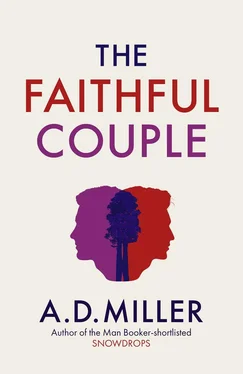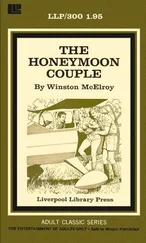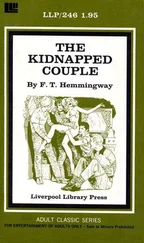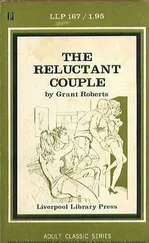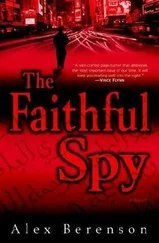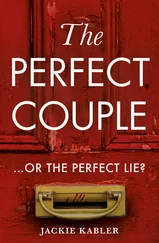‘One more,’ Harry said. His hair and complexion were all Claire, but there was something of Adam in his eyes and mouth.
‘Love you.’
‘In morning,’ Harry said, rolling over. He would be starting at his nursery soon, embarking on his life apart.
Adam hurried down the stairs again, anxious about leaving them alone, past the picture window on the maisonette’s half-landing, beyond it the patchwork of skinny, London gardens squeezed between their road and the next, tiny manicured lawns and outsized trees, none belonging to them. In the sitting room Ruby opened her eyes, tried to focus, and saw something she didn’t like, a colour or a shape or a shade; she wrenched her gummy mouth into the embouchure of a scream, a silent scream that never came out. She began mouthing the air for milk, like a dog optimistically humping a leg, as if willpower alone might conform the world to her desire.
Adam’s eyes asked Claire this time. He might have said, Do you realise what sort of a man you are married to? Or, I thought you might be interested to know… It was so long ago, before they met, but it might matter to her now, as it did to him. Her eyes were the same.
Ruby hit the roof when the breast came out, always negotiating hardest when she was closing the deal. Claire angled an engorged tit into her mouth; Neil lost his nerve, cast his eyes around the room for something else to scrutinise and settled on his phone.
‘I should go,’ he said. ‘Jess…’
‘Of course,’ Adam said. ‘You go.’
Claire prised the baby from her breast so Neil could kiss the bumfluffed head, smiling her queenly, disappointed smile. No handshake for the men, no shoulder biffs or backslapping hugs.
‘You all right?’ she asked Adam. ‘You two… okay?’
She was wiser than he sometimes gave her credit for. Remember that, Adam told himself. Don’t lose sight of her.
‘Yes,’ he said. ‘Much better.’
Neil belted up and joined the evening traffic, heading west to east with the others, from the Nappylands of the suburbs to Dinkyville. He turned on the radio — It’s driving me mad, Going out of my — and snapped it off again.
Neil was furious. He was dazed. He had known. He spat out a laugh. All this time.
He didn’t want to think about California, he mustn’t, not immediately. Basic rule of business: don’t be railroaded into anything. Shake hands, do the sums when you get home. If Farid were there he would have smiled, said Very interesting and nothing more, pulverising Adam with his silence.
Neil shouldn’t have gone back to the house. That was already a concession. He didn’t want to think about it, because if he did, he would have to decide. He was supposed to be in his pomp.
At the end of Adam’s road a church was being converted into flats. Only One Unit Remaining! — even though the skeletal building was roofless. Churches turning into flats, cinemas transforming into gyms, old boozers mutating into restaurants: the abracadabra of money, magicking everything into something else, a shape-shifting spell that was evidently too strong for megaterrorism or the imminent war to disrupt. Neil Collins from Harrow — Neil Collins of Collins & Sons — metamorphosing into this Neil Collins, the him who was driving his new-model convertible, on his way home to Jess and their chrome and Corian pad.
You could have a kid out there too.
I knew she was too young.
At least, Neil tried to console himself, they had avoided the familiar deaf arguments over Iraq, the argument itself akin to trench warfare, no positions ever altered and no minds changed, Adam against, Neil for, partly, he knew, because Adam was against.
She was too young.
Neil wasn’t going to think about them. He didn’t want to forgive Adam in a rush, lazily, and he was terrified of not forgiving him. Adam and his preposterous curse.
This car, their flat, his suits: he owed it all to Farid. When HappyFamilies went bust, Bimal and the others had emerged from the rubble as eminently marketable commodities. Old, panicking analogue companies were recruiting digerati in a hurry, and even a belly-up dotcom history was enough to impress them. Bimal had straight away been hired to run the online operation for a luxury goods firm; Jess was snapped up by another design agency, with a grander title and improved salary. They were veterans before they were thirty, like specialists in a new kind of combat. They had learned important lessons while squandering Farid’s cash. Don’t count on Russian export licences, for one. The Millennium bug, that pantomime Armageddon, didn’t strike, but there was a swarm of other bugs, and the website was much too slow, just as customers were coming to appreciate how vital, how urgent, were the extra microseconds it took to log on, boot up and download. Those flickering waits had become an unbearable imposition.
The main lesson had been about wiring, human wiring rather than the electronic kind. Bimal moved them to new offices off Carnaby Street, Neil developed a new product line (key rings, place mats, fridge magnets), Jess organised a slap-up launch in a disused fire station, all on the unexamined presumption that consumers had been rewired: that because they could do something, such as buy a bespoke silk-screened tea towel for £14.99 plus p+p, they would. Of course they would. They must. Program it, and they will point and click. But they wouldn’t, not in the numbers needed to keep HappyFamilies afloat when Farid’s money ran out. Business was still business, a Stone Age equation of revenue and costs. People were still recalcitrant, inconveniently autonomous people.
If he had told me that night, Neil thought as he drove, I wouldn’t have done it. Of course not. If he had told me the following day, while I waited for the police and the handcuffs, I would have repudiated him on the spot. I might have.
He turned into a long, straight, speed-trap street, grand Victorian houses on one side, council estates on the other, the road a no man’s land between the two camps. Segments of melon grinned in Technicolor rows beneath the awning of a Levantine grocer’s.
Farid had abandoned them. He must have paid the shyster lawyer who negotiated his stake almost as much as he invested — he had sunk over a million all told — but he declined to double down. In the office people were whispering that he had only ever wanted to give his cash a nice dotcom sheen. Bimal filed for insolvency, people were yanking computers, scanners and coffeemakers out of the wall, in a spontaneous and oddly festive bout of auto-looting, when Strahan called Neil. Farid wanted to see him. He found the designated restaurant in Mayfair.
It didn’t matter that he knew nothing about property, which, Farid explained, was these days his main concern. No, it was nothing to do with the internet, though they probably ought to have a place-filler website for the sake of appearances. Neil could sell, Farid said, or rather, he could squeeze investors for money, as he himself could testify, which was essentially the same talent. Farid had Strahan, with his picturesque cynicism, for schmoozing and introductions, but he needed a negotiator. Neil was a good fit, he implied, a useful median between the toffs and the cosmopolitan hustlers he dealt with. Farid smiled once, told Neil that Strahan would fix the details, basic plus bonuses, and turned back to his salad.
Fucker wasn’t even sorry, Neil thought as he indicated to turn right. Not really. Sorry for her, sure, and for himself, his hocus-pocus evil eye, but not for me. If he had told me after we flew home, that summer… It was too long ago, he couldn’t know what he would have done. He might have laughed about it; he might not have cared.
Читать дальше
